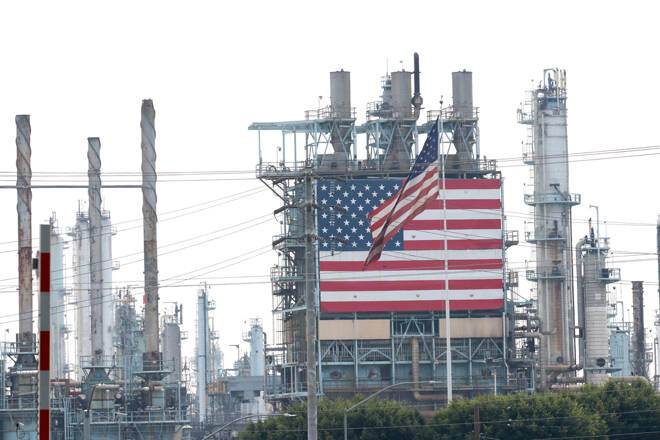Advertisement
Advertisement
Marathon Oil Posts Fourth Straight Loss in Q3 as COVID-19 Pandemic Hit Demand
By:
Marathon Oil, an energy exploration and production company, reported a loss for the fourth consecutive time in the third quarter as the ongoing COVID-19 pandemic hit demand for fuel.
Marathon Oil, an energy exploration and production company, reported a loss for the fourth consecutive time in the third quarter as the ongoing COVID-19 pandemic hit demand for fuel.
U.S. shale producer reported a third-quarter 2020 net loss of $317 million, or $0.40 per diluted share. The adjusted net loss was $219 million, or $0.28 per diluted share. Net operating cash flow was $345 million, or $352 million before changes in working capital, the company said.
Marathon’s third-quarter total company oil-equivalent production declined to 370,000 net barrels of oil equivalent per day (boed) from 426,000 boepd a year ago; full-year oil-equivalent guidance raised by 5,000 net boed at the midpoint.
Marathon Oil shares closed 3.14% higher at $4.27 on Wednesday; however, the stock is down about 70% so far this year.
Executive Comments
“While we continue to manage through commodity price volatility and the ongoing COVID-19 pandemic, third quarter represented an inflection point in what has been a transitional year, highlighted by $180 million of free cash flow generation on strong execution across all elements of our business,” said Chairman, President, and CEO Lee Tillman. “We believe our unwavering focus on how we allocate capital, how we manage our cost structure, and how we execute is clearly paying off. Third-quarter free cash flow more than funded the reinstatement of our base dividend and a gross debt reduction of $100 million, consistent with our objective to return capital to shareholders and enhance our balance sheet. We are well-positioned to continue doing both in the current environment.”
“We have also committed to a transparent capital allocation framework that provides visibility to compelling free cash flow generation and the dedication of meaningful cash flow to investor-friendly purposes,” continued Tillman. “Beyond just a commitment, we have a unique track record of delivery on this framework since 2018. We believe we have successfully positioned our company for industry-leading capital efficiency and sustainable free cash flow generation at lower and more volatile mid-cycle pricing.”
Marathon Oil Stock Price Forecast
Twelve equity analysts forecast the average price in 12 months at $5.51 with a high forecast of $9.00 and a low forecast of $4.00. The average price target represents a 29.04% increase from the last price of $4.27. From those 12 analysts, one rated “Buy”, ten rated “Hold” and one rated “Sell”, according to Tipranks.
Morgan Stanley gave the base target price of $4.5 with a high of $11 under a bull-case scenario and $2 under the worst-case scenario. The firm currently has an “Underweight” rating on the shale producer’s stock. Barclays lowered their price target to $5.5 from $6.5 and Susquehanna cuts stock price forecast to $4.5 from $5.
Several other analysts have also recently commented on the stock. Simmons energy downgraded the price target to $5 from $7 and UBS lowered the target price to $5 from $6. Marathon Oil had its target price reduced by equities research analysts at Citigroup to $4.75 from $6.50. The brokerage currently has a “neutral” rating on the oil and gas producer’s stock. At last, Northland Securities initiated coverage on Marathon Oil in a report on Monday, September 14th. They issued a “market perform” rating and a $5.40 price objective on the stock.
Analyst Comments
“Outlook relatively challenged. The combination of more challenged core inventory depth than peers, exposure to higher cost (and lower realization) basins, exposure to Dakota Access Pipeline (DAPL) uncertainty, and international headwinds create a challenging backdrop. Moderate discount warranted. Marathon Oil is trading at a discount to NAm peers, which we believe is warranted given its shorter “core” inventory life and Bakken exposure,” said Devin McDermott, equity and commodities strategist at Morgan Stanley.
Check out FX Empire’s earnings calendar
About the Author
Vivek Kumarauthor
Vivek completed his education from the University of Mumbai in Economics and possesses stronghold in writing on stocks, commodities, foreign exchange, and bonds.
Advertisement
